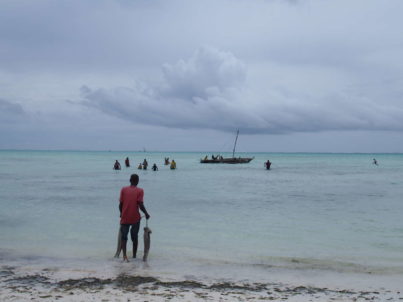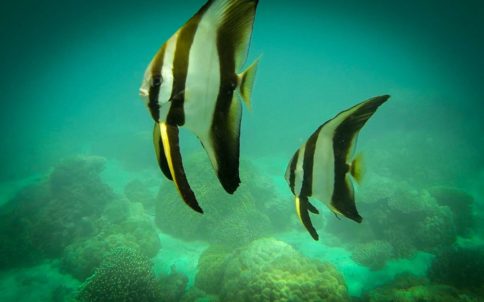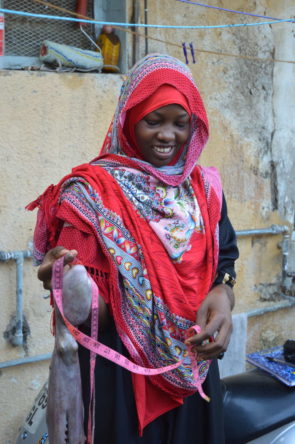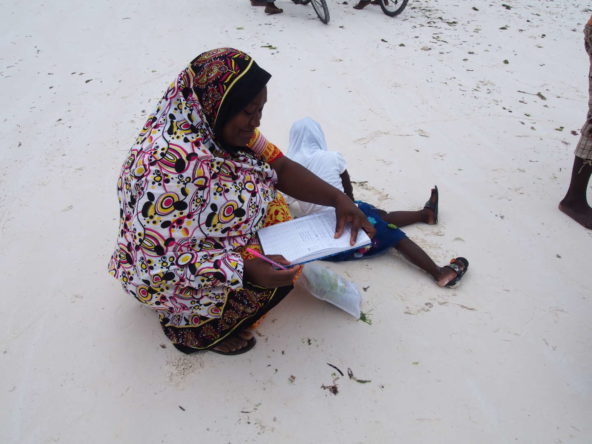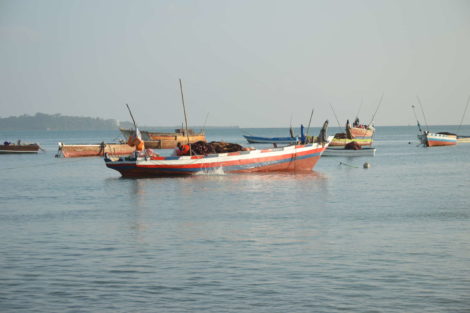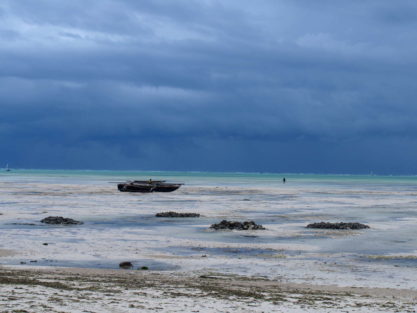This post is also available in:
 Indonesian
Indonesian
By Ruth H. Leeney
Tanzania’s extensive and biodiverse coastal and marine environments support the livelihoods of millions of people and uphold the nation’s economy. These environments are the mainstay of traditional fisheries and coastal tourism, providing food for hundreds of thousands of Tanzanians, as well as generating seafood products for export. Yet, these ecosystems are under increasing threat from a changing climate, a growing population, changes in fishing techniques and an increasing demand for marine products. Pushing the marine environment closer and closer to its limits poses considerable risk to both people and the planet.
In recent decades there has been a move towards collaborative, locally led approaches to managing fisheriesIn recent decades there has been a move towards collaborative, locally led approaches to managing fisheries, where communities are involved in making decisions about how their marine resources should be used. Throughout East Africa and beyond, increasing numbers of coastal communities are assuming responsibility for their fisheries under community-led efforts and co-management arrangements between the government and local communities. Local management of marine areas can have many benefits, including long-term sustainability of resources, short-term increases in catches, reinforcement of local traditions and customs, protection of marine and coastal habitats, and building skills and motivation in communities to manage their own resources.
Blue Ventures has been working on the island of Unguja (one of Zanzibar’s two main islands, the other being Pemba) since 2016, alongside local NGO, Mwambao Coastal Community Network. Historically on Unguja, cultural practices regulating access to certain natural resources were managed by community leaders. These practices began to wane as more formal, ‘top-down’ fisheries management systems were introduced, but these do not always account for the rights and needs of the communities that rely on the ocean for their livelihoods.
A new dawn for co-management
The concept of co-management (between government and local fishers) is not new to communities in Zanzibar and has been written into Zanzibari fisheries legislation since 1991, but until recently, there was never any viable way to implement it.
In 2018, the opportunity arose for the Blue Ventures team in Tanzania to collaborate on an ambitious project with the Ministry of Livestock and Fisheries (MLF), under the World Bank’s SWIOFish project, to develop new Fisheries Management Plans (FMPs) for three of Zanzibar’s most important fisheries: reef fish, octopus and small pelagic (or open water) fish. An FMP is a plan that ensures the biological, ecological and socioeconomic development of a fishery.
The project was led by MRAG, who partnered with both Blue Ventures and Mwambao. The primary objectives of the project were to define the current status of fisheries and develop five-year FMPs for the three fisheries. In developing the plans, fishing communities were able to take an active role and contribute meaningful suggestions that would benefit their livelihoods.
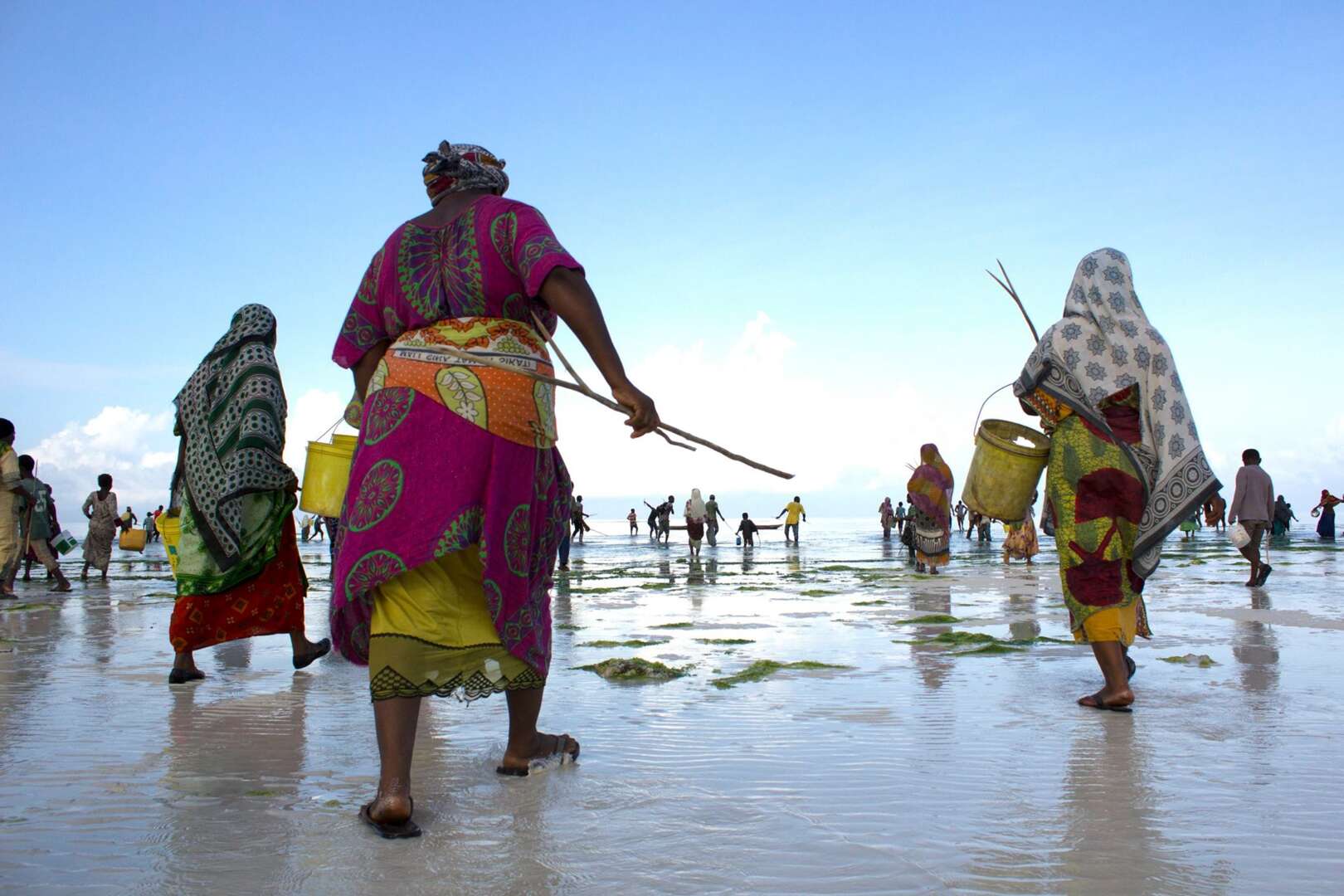
Octopus fisherwomen head out to shore during a temporary octopus closure reopening on Fundo Island, just off the coast of Pemba | Photo: Mwambao
Consulting communities
As the lead partner, MRAG, a consultancy with extensive experience in fisheries management, provided an international perspective and drew together contributions from all three partners within a management plan framework. Meanwhile, Blue Ventures and Mwambao coordinated consultations with over 120 fishers, fish vendors and researchers to discuss the challenges and issues facing each of these groups, as well as how they thought co-management should function. The fishers and sellers that were consulted are members of the 92 Shehia Fishery Committees (SFCs – the local marine resource management unit in Zanzibar) on both Unguja and Pemba.
The consultations we held were lengthy and in-depth, encouraging open discussions around fisheries to learn the communities’ perspective.The consultations we held were lengthy and in-depth, encouraging open discussions around fisheries to learn the communities’ perspective. All participants were asked to identify challenges and opportunities in their area, and what successful management meant to them. But we also had specific sets of questions for each group, for example, with fishers, the discussions focused on fishing techniques, perceptions of the state of fish populations, threats to fisheries, types of post-catch processing and existing involvement with management. Participatory mapping was used to identify fishing grounds, key resource areas and concentrations of fishers. With fish vendors, discussions largely focused on the value of fishery products and issues in the supply chains.
“This process enabled a wide group of stakeholders to come together and discuss the challenges they face in managing their fisheries. Fishers from numerous communities had the chance to have their voices heard”, noted Robert Wakeford of MRAG.
The extensive consultations enabled communities to contribute to the process as much as possible, developing the most effective co-management plans which consider the needs of both communities and the government. Lorna Slade, Executive Director of Mwambao, added, “It’s only through doing these consultations that communities can develop some sense of ownership of the final management plans, and thus are more likely to adopt the recommended measures”.
Another key part of the process involved collating data so that we could assess the state of each of the three fisheries. Such data are often lacking in low-income countries, but are essential in order to develop effective management plans. This proved one of the more challenging parts of the project, but the enthusiasm and willingness of the fishers to engage with the team made the process smooth. Chris Horrill, an independent consultant advising the Zanzibari government on fisheries co-management, noted that having a vision for the future greatly motivated the consultation participants and led to their motto,
Managing for today and tomorrow, not for yesterday”.
Outcomes for communities and the government
Now that the FMPs are complete, they will begin to shape how the government and SFCs work together. As a result of this project, it is hoped that these communities will have greater control over what happens in their fisheries and have opportunities to have their say in how co-management processes are designed and implemented. After all, it is the communities who are most immediately affected by changes in natural resources, and are also best placed to anticipate and manage changes at a local scale.
This project has emphasised the essential role of local communities in the management of their local marine environments, and the resources on which they depend”, Lorna Slade noted.
As a result of the consultation process, which partly focussed on how SFCs function, each SFC committee now has an elected representative, meaning that they better represent a diversity of fisheries, and the number of women elected increased. All of the fishers now have a means of voicing concerns and priorities specific to their own fishery, and are more invested in the activities of the committee.
At the government-level, the FMPs will help the Zanzibari government to address two key Sustainable Development Goals (SDGs): poverty alleviation (SDG 1) and the conservation and sustainable use of the oceans (SDG 14).
What happens next?
The organisations supporting the initiative are now supporting communities to prepare their own co-management plans, which will link to national fisheries management plans. Blue Ventures and Mwambao will then work alongside the Department of Fisheries to put these plans in action.
Essentially, this project has allowed for co-management to officially be incorporated in fisheries management in Zanzibar, and whilst the FMPs are not yet enshrined in Zanzibari law, the project teams are already developing a strategy for implementation that will support SFCs to map out pathways to long-lasting solutions for their fisheries.
As a result, communities on Unguja and Pemba will be empowered to overcome the challenges they face with renewed capacity and momentum. For example, they may address the use of illegal and destructive fishing gears (such as mosquito nets, beach seines and wire mesh traps) or agree on controlling access to certain fishing areas. Whilst these issues have concerned these communities for a long time and various attempts to resolve have emerged over the years, it is hoped that SFCs will now be able to provide structure to solutions through their FMPs.
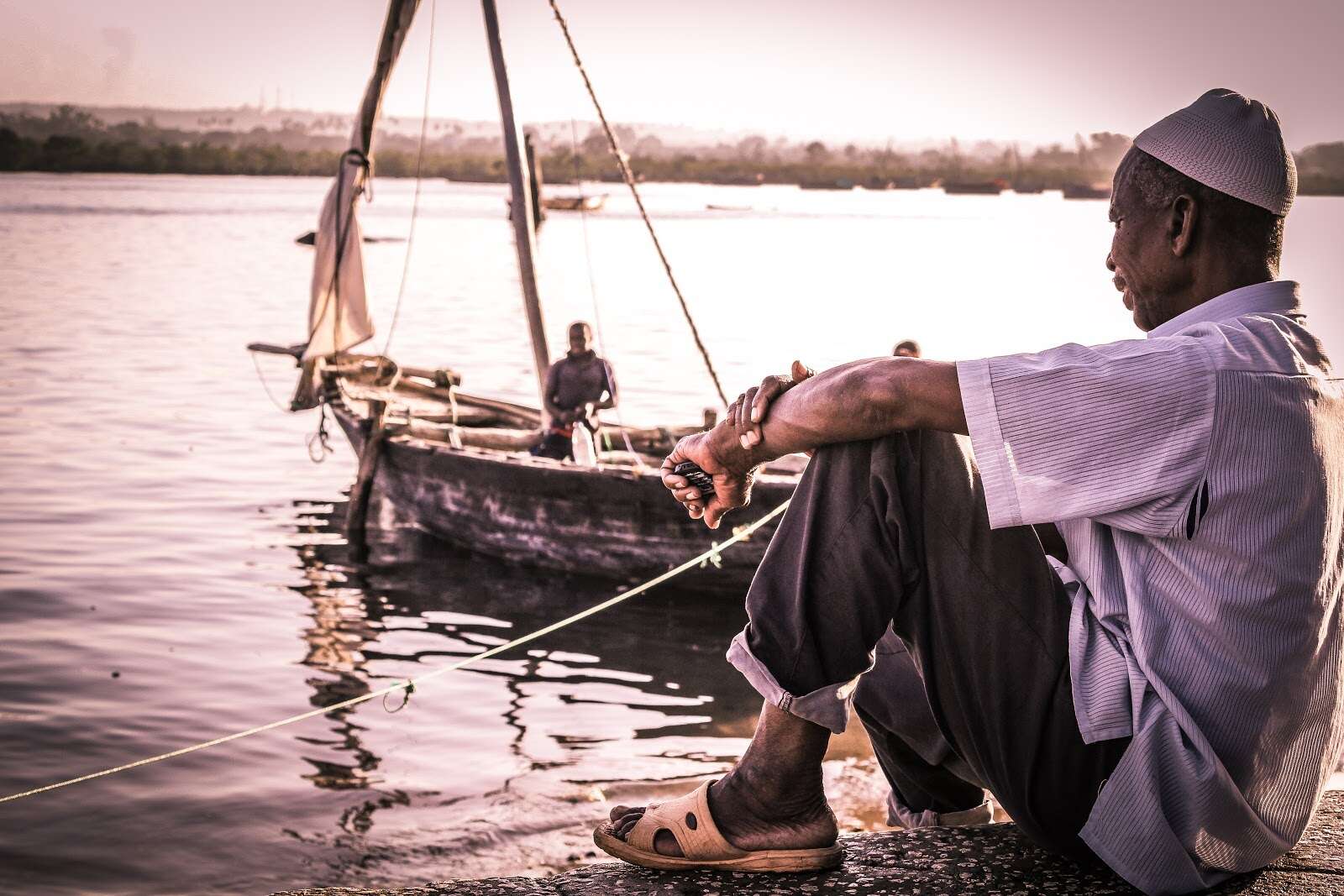
For fishers in Zanzibar, having clear and structured fisheries management plans will enable them to take ownership over their natural resources and protect future generations | Photo: Steve Rocliffe
Programmes in East Africa and further afield are building evidence that involving communities in shaping fisheries management approaches is critical to the success of that management. This was already apparent from efforts in Madagascar, where the implementation of locally managed marine areas – areas of ocean managed by coastal communities – has spread around the coastline.
Combining local knowledge on fisheries, ecosystems and barriers to effective management, with government implementation and enforcement has the potential to create powerful and enduring partnerships, which can be supported by organisations like Mwambao – agile and experienced community-based organisations that understand local contexts, are responsive and adaptive to community needs and are embedded within communities they support.
For sustainable management of fisheries to really be successful, communities need to have a voice. This type of co-management model incorporates the principles of good governance and the rights of fishers, principles that NGOs like Blue Ventures and Mwambao support. So it really is a way to ensure longevity and sustainability in fisheries management, in a way that puts communities first.” – Haji Machano, Regional Partner Support Coordinator, Blue Ventures, Tanzania
A special thanks to our partners, MRAG and Mwambao for their collaboration on this project.
Meet Haji and Khamis, Blue Ventures’ expert team in Tanzania
Learn more about our partnership with Mwambao
Find out what happened when a group of Comorian fisherwomen visited Zanzibar in a fisheries learning exchange


